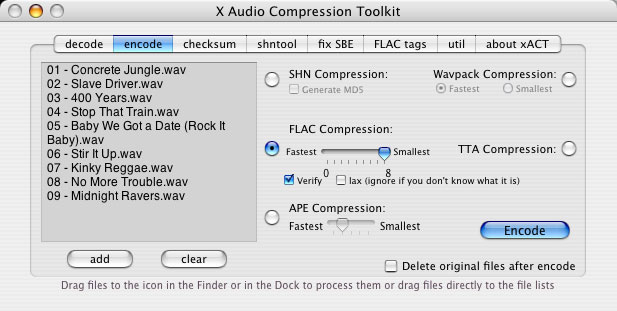What's the most efficient way to export tunes bought with iTunes that are protected aac to FLAC for playing on other music hardware (still for personal use)?
2 methods I can think of so far are:
make a playlist of all the purchased songs in the library, rip to CD, then rip the CD to FLAC. Disadvantage: with 80+ tunes, this would require multiple CDs. But I'm assuming that titles of the tunes are recorded as CD-text, is this true?
same as above but instead of ripping to CD, use SoundFlower to record the output. Disadvantage: no CDs required but will have to manually split the recording into each track and name it.
Any better ideas? Thanks.

